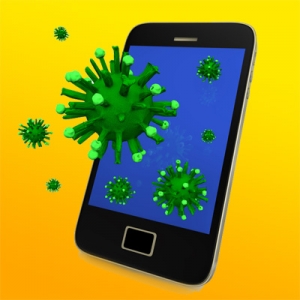Nobody used to worry about malware on mobile devices like smartphones. Those days have gone. Mobile malware has become well established in the last few years, with mobile botnets a very real threat. Mobile security is now something everyone needs to think about.
It used to be PCs that scammers and cybercriminals focused their energy on. Today mobile devices are just as attractive to hackers because of the rise and rise in the use of smartphones and tablets. Not only do we rely more and more on these devices, but we store more and more personal data on them, including banking and credit card details, as well as information contained in social media accounts and email.
All sorts of communication technologies are built into mobile devices and these can be used to facilitate the spread of malware. Easy Wi-Fi connectivity in and out of the home or office, as well as 3, 4 and 5G, mean that most mobile devices are connected to the internet a lot of the time, which assists in the propagation of malware. Users can easily be tricked into downloading infected software, which often masquerades as legitimate software or is concealed within harmless apps. Malicious code modifies the device so others can gain root or administrator access.
With this access, the internet connectivity and texting (SMS) capability of the device can be harnessed to link up with other linked devices in a botnet. A botnet is a network of devices that have been infiltrated and modified so that cybercriminals can distribute spam and malware. When a connection has been made to a command and control server it’s possible to steal data and coordinate cyberattacks. Sometimes mobile botnets use a decentralized network, so the command and control server only has to activate processes on a few devices. These then pass on the instructions to other devices, which in turn pass them on to others (this is known as ‘peer to peer’ or P2P networking). They can also use a cloud-like structure to achieve their goals.
Your mobile device can be protected against these scams. Most mobile devices will allow antivirus software installation. If your device is old this may not be ideal, because smartphone antivirus software is less developed than the programs that have been developed for PCs, and can slow your device down. Adopting mobile best practices may be an alternative strategy. Never download software from third party app marketplaces or other unverified sites. When installing apps, check the permissions it demands. Does it need to have texting capability or administrator access? Unless you’re downloading apps from a trusted site or vendor, be suspicious and cautious.
Mobile malware is a problem that’s only got bigger, and will continue to do so, so be vigilant and always keep your antivirus and security software up to date. Quikteks can help you to implement a mobile security policy or plan. Call our helpdesk on (973) 882-4644for advice.

